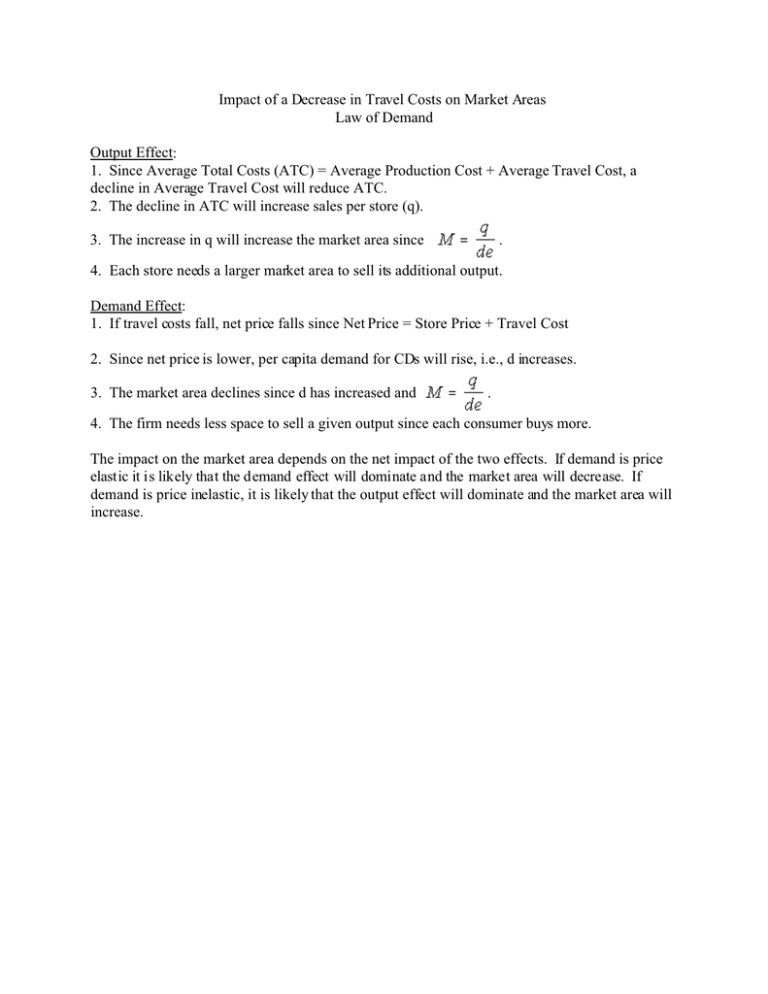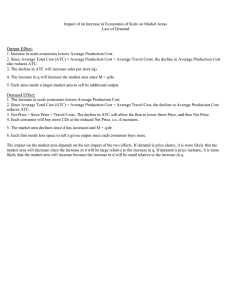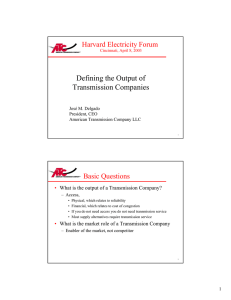Impact of a Decrease in Travel Costs on Market Areas
advertisement

Impact of a Decrease in Travel Costs on Market Areas Law of Demand Output Effect: 1. Since Average Total Costs (ATC) = Average Production Cost + Average Travel Cost, a decline in Average Travel Cost will reduce ATC. 2. The decline in ATC will increase sales per store (q). 3. The increase in q will increase the market area since . 4. Each store needs a larger market area to sell its additional output. Demand Effect: 1. If travel costs fall, net price falls since Net Price = Store Price + Travel Cost 2. Since net price is lower, per capita demand for CDs will rise, i.e., d increases. 3. The market area declines since d has increased and . 4. The firm needs less space to sell a given output since each consumer buys more. The impact on the market area depends on the net impact of the two effects. If demand is price elastic it is likely that the demand effect will dominate and the market area will decrease. If demand is price inelastic, it is likely that the output effect will dominate and the market area will increase. Impact of an Increase in Economies of Scale on Market Areas Law of Demand Output Effect: 1. Increase in scale economies lowers Average Production Cost. 2. Since Average Total Cost (ATC) = Average Production Cost + Average Travel Costs, the decline in Average Production Cost also reduces ATC. 3. The decline in ATC will increase sales per store (q). 4. The increase in q will increase the market area since . 5. Each store needs a larger market area to sell its additional ouput. Demand Effect: 1. The increase in scale economies lowers Average Production Cost. 2. Since Average Total Cost (ATC) = Average Production Cost + Average Travel Cost, the decline in average Production Cost reduces ATC. 3. Net Price = Store Price + Travel Costs. The decline in ATC will allow the firm to lower Store Price. 4. Each consumer will buy more CDs at the reduced Store Price, i.e., d increases. 5. The market area declines since d has increased and . The impact on the market area depends on the net impact of the two effects. If demand is price elastic it is more likely that the market area will decrease. If demand is price inelastic, it is more likely that the market area will increase.


